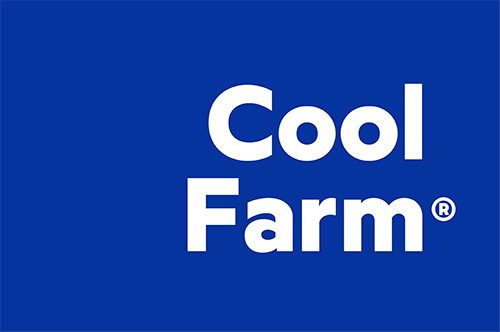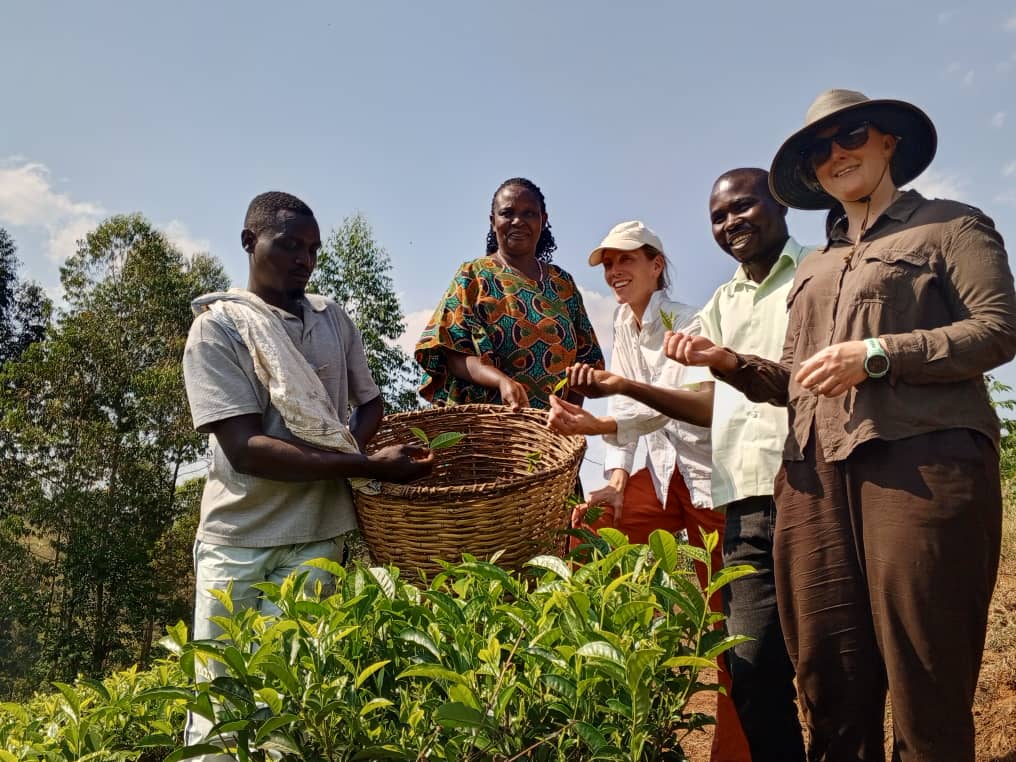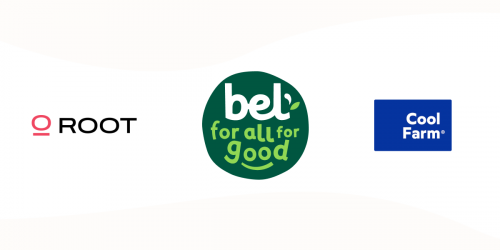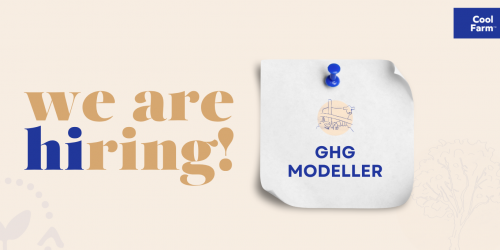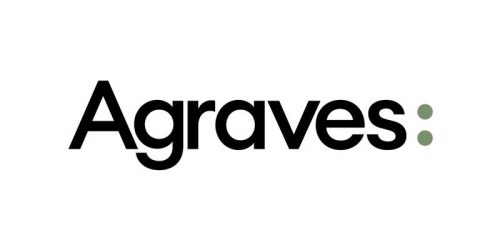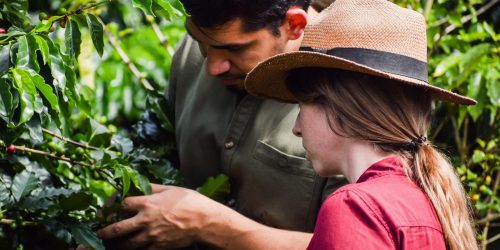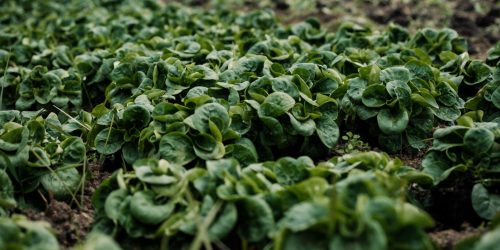Early in July 2024, Cool Farm’s own Dr. Megan McKerchar and Michaela Aschbacher embarked on a fascinating journey to Uganda to visit the international network organisation Solidaridad, stretching from the coffee and palm oil production regions in Masaka to the tea plantations in Bushenyi. Inspired by Solidaridad’s remarkable and impactful work on the ground with farmers worldwide, the team followed their invitation and travelled to meet the local program and field officers, to train them, and to exchange and harvest valuable insights.
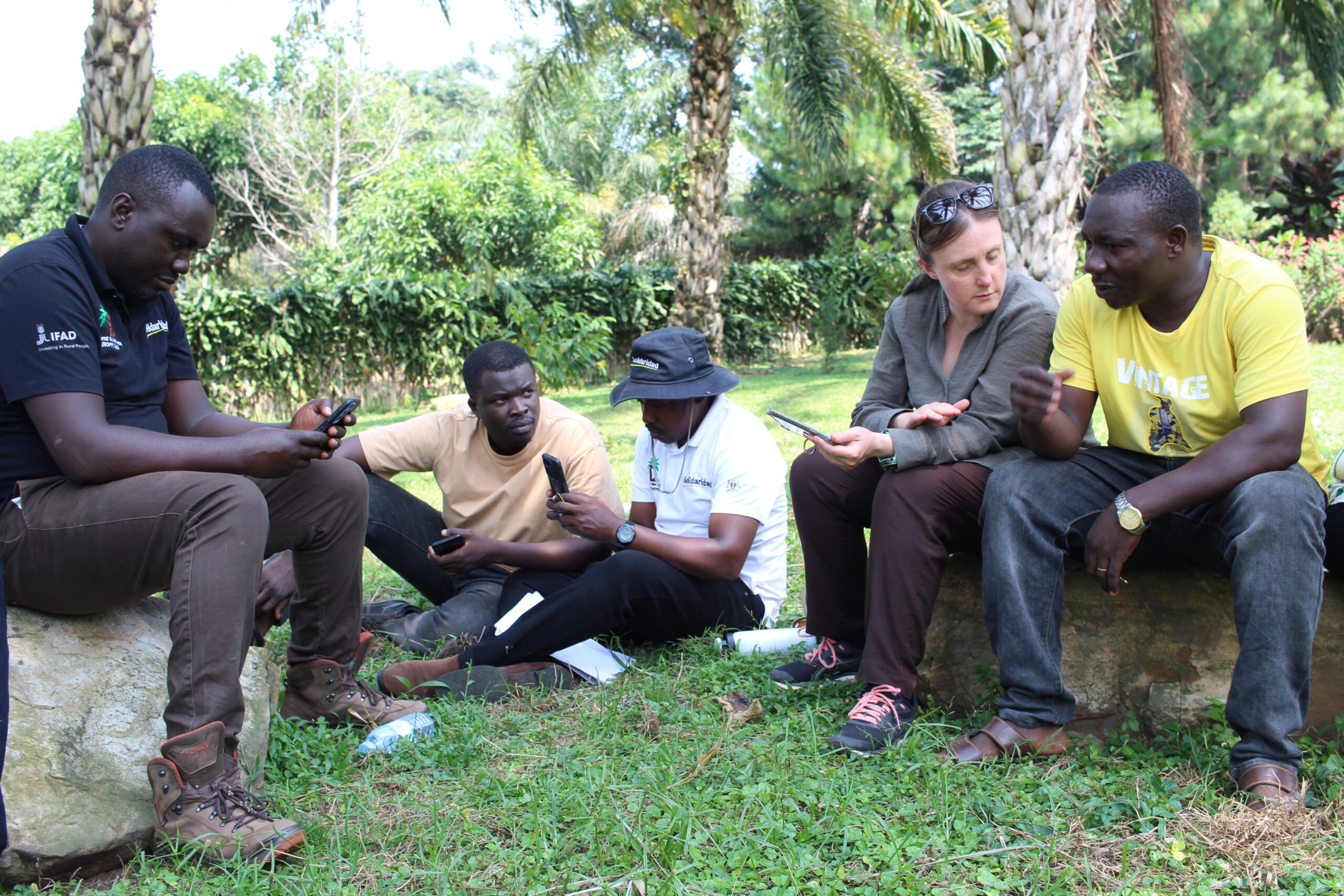
Objectives of the Visit
- Training and Implementation: The primary goal of the visit was to introduce and train the agricultural team of Solidaridad in Uganda on the innovative new Cool Farm perennial methodology for assessing greenhouse gas emissions and carbon sequestration in perennial systems. The aim was to ensure a thorough understanding and correct application of the methodology in their continuous collaboration and support of farmers. The energy, knowledge and creativity of the staff that joined from across the country made the training a great learning experience for everyone.
- Global applicability and user-friendliness: Another crucial aspect was to evaluate the tool’s usability from the farmers’ perspective. By visiting smallholder farms and conducting joint assessments, the team aimed to identify potential improvements and verify the tool’s practical application. Overall, the in-field exercises could confirm the methodology’s global applicability and its adaptation to local conditions. At the same time, it became clear that farmers may not have historical data for full lifecycles, and that agronomic teams can shoulder the burden of such data points by complementing it with local, public research & default values.
- Exploring New Crop Typologies: An exciting part of the agenda was the opportunity to visit tea and palm oil plantations to understand how these new crop types could be integrated into the Perennials model. By examining local practices and typical conditions of these typologies e.g. residues, the team identified possible necessary adjustments to enhance the model’s applicability for these crops. This creates a great foundation of considerations for when the typology datasets will be ready.
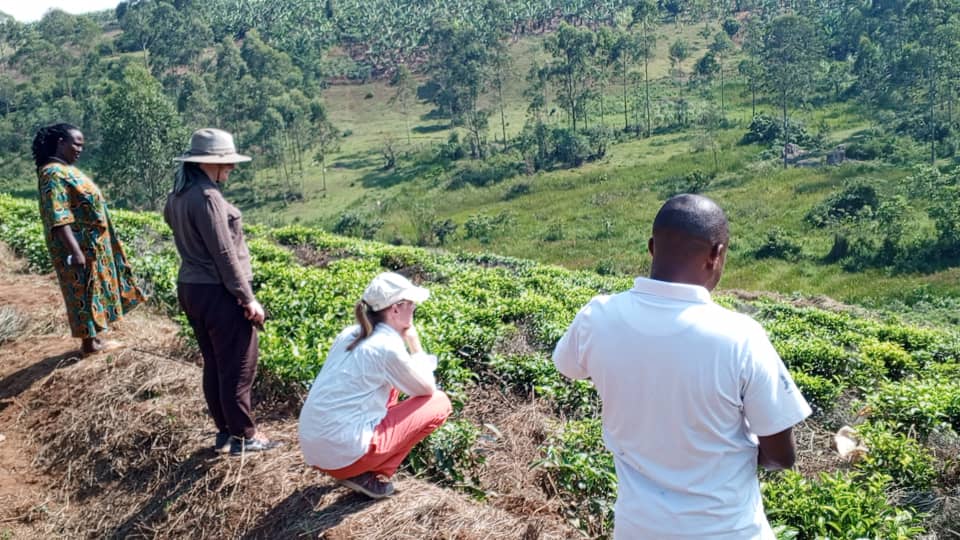
Key Discoveries
- Positive Feedback on Methodology: The team received encouraging feedback on the new methodology, confirming its effectiveness in covering sources of greenhouse gas emissions and sequestration. Field visits provided valuable insights into areas that work well and those needing enhancement, making the methodology more robust and tailored to real-world conditions.
- Enhanced Knowledge through Direct Training: The training sessions with the Solidaridad team were highly successful. It was encouraging to hear that receiving firsthand training from the tool developers themselves added significant value, offering detailed, comprehensive and updated insights and a deeper understanding of its application. Also based on their feedback, The knowledge exchange was mutually beneficial, enhancing both trainers’ and trainees’ expertise.
- Cultural Immersion and Insights: The trip was not solely professional; it was a cultural immersion into Uganda’s agricultural landscape. The team was welcomed with hospitality and humility, experiencing firsthand the farmers’ dedication and ambition. Whether it was the love for their crops, their creative approaches like creating their own fertiliser supply from animal manure, or pioneering female farmer refining and sharing innovative tea-growing techniques with her women’s cooperative. Their passion for refining products, implementing sustainable solutions and empowering communities was truly inspiring. In humble conditions, farmers are visionaries and entrepreneurs deserving of respect and admiration.

The visit to Uganda underscored the importance of making complex scientific tools accessible to farmers. Understanding carbon emissions and applying this knowledge can positively impact their land. The Cool Farm Tool, central to this project, not only aids in environmental sustainability but also serves as an engagement tool that can be used for offering financial rewards which can be vital for farmers’ livelihoods.
Join us in supporting farmers as they lead the way towards a more regenerative future. Whether you’re a farmer, agronomist, or just passionate about sustainable agriculture, explore how the Cool Farm Tool can make a difference in your community. Let’s work together to empower farmers with the knowledge and tools they need to grow sustainably and prosper.
Learn More About the Cool Farm Tool and Get Involved.
